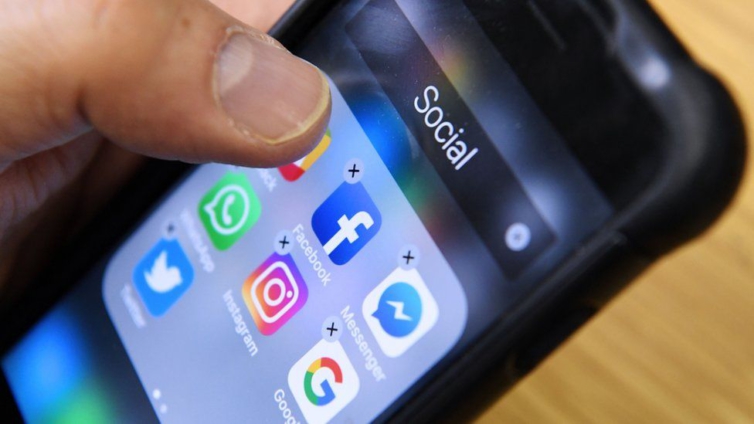Instagram and Facebook users will now be able to pay for a blue tick verification, parent company Meta has announced.
Meta Verified will cost $11.99 (£9.96) a month on web, or $14.99 for iPhone users.
It will be available in Australia and New Zealand this week.
Mark Zuckerberg, Meta chief executive, said the move will improve security and authenticity on the social media apps.
The move comes after Elon Musk, owner of Twitter, implemented the premium Twitter Blue subscription in November 2022.
Meta's paid subscription service is not yet available for businesses, but any individual can pay for verification.
Badges - or "blue ticks"- have been used as verification tools for high-profile accounts to signify their authenticity.
The subscription would give paying users a blue badge, increased visibility of their posts, protection from impersonators and easier access to customer service, Meta said in a post on their website.
The company told the BBC the change would not affect previously verified accounts, but noted there would be an increase in visibility for some smaller users who become verified thanks to the paid feature.
Allowing paying users access to a blue tick has previously caused trouble for other social media platforms.
Twitter's pay-for verification feature was paused last November when people started impersonating big brands and celebrities by paying for the badge.
Meta said Instagram and Facebook usernames will have to match a government supplied ID document to be granted verification, and users will have to have a profile picture that includes their face.
Other websites like Reddit, YouTube and Discord similarly use subscription-based models.
Meta has not yet specified when the feature will be rolled out to other countries, although Mr Zuckerberg said in a post it would be "soon".
In November, the company announced 11,000 job losses as a result of over-investment during the Covid-19 pandemic.
At the time, Mr Zuckerberg said he had predicted an increase in Meta's growth based on the rise it had over the pandemic, but that ultimately did not happen.
"Many people predicted this would be a permanent acceleration," he wrote, "I did too, so I made the decision to significantly increase our investments."
Instead he said "macroeconomic downturn" and "increased competition" caused revenue to be much lower than expected.
"I got this wrong, and I take responsibility for that," he said at the time.
Latest Stories
-
George Twum-Barimah-Adu pledges inclusive cabinet with Minority and Majority leaders
44 mins -
Labourer jailed 5 years for inflicting cutlass wounds on businessman
44 mins -
Parliament urged to fast-track passage of Road Traffic Amendment Bill
45 mins -
Mr Daniel Kofi Asante aka Electrician
46 mins -
Minerals Commission, Solidaridad unveils forum to tackle child labour in mining sector
51 mins -
Election 2024: Engagement with security services productive – NDC
52 mins -
Retain NPP for the good of Ghana – Rebecca Akufo-Addo
52 mins -
‘Let’s work together to improve sanitation, promote health outcome’ – Sector Minister urges
53 mins -
Ellembelle MP cuts sod for six-unit classroom block at Nkroful Agric SHS
56 mins -
‘I’ll beat the hell out of you if you misbehave on December 7’ – Achiase Commanding Officer
59 mins -
AFPNC leads the charge on World Prematurity Day 2024
1 hour -
Court remands unemployed man over theft of ECG property
1 hour -
Election security rests solely with the police – Central Regional Police Command
1 hour -
NCCE engages political youth activists at Kumbungu on tolerance
1 hour -
‘In Mahama’s era students lacked chalk, but are now receiving tablets’ – Bawumia
1 hour

